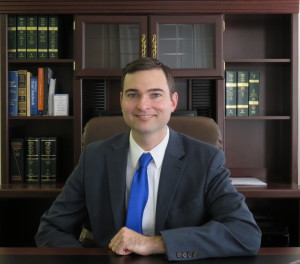Probate and Estate Administration Attorney in Wilmington, NC
If you are an executor or personal representative of an estate in North Carolina and need assistance with probate or estate administration, rely on the experience of Seay Law Firm, PLLC. As a trusted probate law firm, we specialize in providing comprehensive legal services to help you navigate through the complexities of probate and estate matters.
Schedule a Consultation: Contact our Office at (910) 763-2525
Our Services:
- Probate Attorney Services: Our experienced probate attorneys offer guidance and support throughout the probate process. From qualifying as a personal representative to distributing assets to heirs and beneficiaries, we ensure the proper administration of the estate.
- Estate Administration Lawyer: We assist clients with all aspects of estate administration, including interpreting will provisions, gathering and valuing assets, opening and closing bank accounts, notifying creditors, and filing required inventory and accounts with the court.
- Estate Planning Attorney: In addition to probate and estate administration, we offer estate planning services to help you create a solid plan for the distribution of your assets. Our estate planning attorneys can assist with wills, trusts, and other estate planning documents tailored to your specific needs.
- Estate Litigation and Dispute Resolution: Our skilled attorneys can provide representation in estate litigation cases, such as will contests, disputes among beneficiaries, and challenges to the validity of the will. We work diligently to protect your rights and interests.
To schedule a consultation with our experienced probate and estate administration attorney, call Seay Law Firm, PLLC at (910) 763-2525. Our dedicated team is here to guide you through the probate process, ensure compliance with legal requirements, and provide personalized solutions for your estate administration needs.
Seay Law Firm, PLLC serves clients throughout North Carolina, with a focus on New Hanover, Pender, and Brunswick counties..
Remember, navigating probate and estate administration can be complex, but with the right legal support, you can have peace of mind knowing that your loved one's estate is handled appropriately. Let our knowledgeable team at Seay Law Firm, PLLC assist you every step of the way.

Understanding Probate and Estate Administration:
When a loved one passes away, certain assets held in their individual name may require probate or estate administration. Although the terms are often used interchangeably, probate is a court-supervised procedure to validate a will's authenticity. The court appoints a personal representative, typically the named Executor, to manage the estate administration. If there is no will, the court appoints an appropriate person based on North Carolina intestate law.
The probate and estate administration process ensures that creditors can make claims against the estate and facilitates the transfer of remaining assets to intended beneficiaries according to the Will. The court oversees estate administration and requires a detailed account of assets passing through the estate. In North Carolina, the Clerk of Superior Court supervises the estate administration process.
General Steps in Probate and Estate Administration:
The estate administration process typically involves three main phases:
- Qualification of the Personal Representative
- Gathering and Valuing Assets for Inventory
- Accounting for and Distributing Assets

Do I need a probate or estate administration attorney?
For many families, the last thing you want to worry about during this time is the legal obligations of the estate administration process. The required documents, papers, applications, filings, notices, inventories, and accounting associated with an estate administration can often be daunting, confusing, and time consuming. These difficulties are multiplied if you are from out of state or live far away from the applicable courthouse. Often the estate administration process can drag on for many months or even years.
Our estate administration and probate attorneys can ease the process by guiding our estate administration clients through the entire process, from qualifying as the estate representative to final settlement and accounting. We can give you peace of mind, knowing that a professional is handling the estate the correct way.
Moreover, it's important to note that the estate attorney is often paid through the estate and not by the personal representative. If the personal representative spends their own money hiring an estate administration attorney, the court routinely permits their expenses to be reimbursed from estate assets as a cost of administration.
Did you know that an Estate Administration attorney can actually save you money?
It is worth noting that in certain cases, an estate administration attorney saves the estate and beneficiaries significant amounts of money. For example, North Carolina law contains very specific timelines and requirements for creditors to seek payment against an estate. If these timelines and requirements are not met, a creditor claim may be rejected. We are well-versed in these requirements and have saved our estate clients large amounts of money by avoiding invalid claims that may otherwise have been paid.
Consultation
If you have lost a loved one, contact an estate administration lawyer at Seay Law Firm, PLLC for a consultation. Our estate administration attorneys assist surviving spouses, executors, administrators, beneficiaries, and trustees. We are understanding, easy to communicate with, and thorough. We can assist you through the probate and estate administration process, ensuring that the estate of your loved one is handled appropriately.

Frequent Estate Administration Issues.
Below is a list of some estate administration and probate issues that we often help our clients think through:
- Is a full and formal administration needed, or is a shorter alternative available, such as Administration by Affidavit for Small Estate or Year's Allowance for the surviving spouse?
- Was the Will made out-of-state? This can sometimes cause complications.
- Is there a Will, or did the decedent die without a will (intestate)?
- Is the Will you have found the last and final will signed by the decedent, or a previous will that may have been revoked through the creation of a newer will?
- Is the Will an original or a copy?
- Will the clerk accept a copy of the Will and not an original?
- Did the decedent have any children after the Will was made?
- Did the decedent get a divorce after the Will was made?
- Is there potential for a caveat?
- Is access needed to a safe-deposit box?
- If there is no Will, who are the beneficiaries of the Estate? In such cases, North Carolina intestate law controls who is entitled to share in a North Carolina estate. In many cases, North Carolina intestate law may not match your expectations
This list is not exhaustive but provides a general idea of some of the issues that may need significant thought in estate administration. It's important to consult with an attorney to understand how the law applies to your particular situation

Schedule Estate Administration Consultation
Contact Us
- P: (910) 763-2525
Mailing Address:
- Seay Law Firm, PLLC
- 519 Market Street
- Wilmington, NC 28401
Attorneys
Directions


